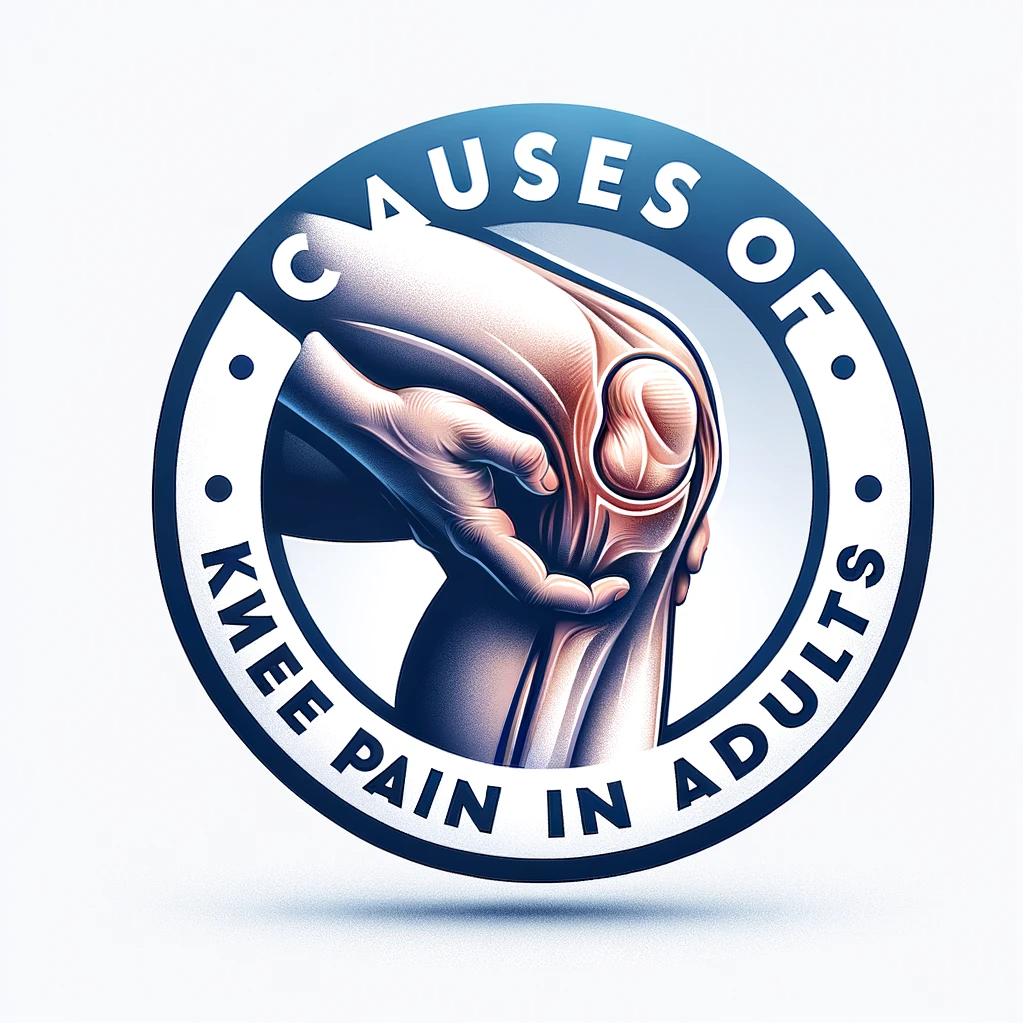
Recovery after double knee replacement surgery is a crucial phase in the journey to regaining mobility and improving quality of life. This article provides a comprehensive overview of the recovery process, including key considerations and strategies for a successful rehabilitation.
Key Takeaways
- Follow the prescribed physical therapy and rehabilitation exercises diligently.
- Stay consistent with pain management techniques and communicate any concerns with the healthcare team.
- Maintain a balanced and nutritious diet to support the healing process.
- Be patient with the recovery timeline and set realistic expectations for progress.
- Prioritize mental and emotional well-being through positive reinforcement and a strong support system.
Understanding Knee Replacement Surgery

What is Knee Replacement Surgery?
Knee replacement surgery, also known as arthroplasty, is a surgical procedure to replace damaged or worn-out parts of the knee joint with artificial components. This procedure is commonly performed to relieve pain and improve mobility in individuals with severe knee arthritis or injury. We understand the importance of this surgery and the impact it has on our lives.
Types of Knee Replacement Surgery
When we consider knee replacement surgery, it’s important to understand that there are several types to choose from, each tailored to the specific needs of the patient. The most common type is total knee replacement, where both sides of the knee joint are replaced. In contrast, a partial knee replacement involves only one side of the joint, suitable for those with damage confined to a single part of the knee.
Another option is the unicompartmental knee replacement, which is a variation of the partial replacement that focuses on the inside or outside compartments of the knee. For those with more complex issues, a revision knee replacement may be necessary, which is a subsequent surgery to correct or replace a previous implant.
It is crucial to choose the right type of surgery based on the individual’s condition and lifestyle, as it will significantly influence the recovery process and the overall outcome.
The decision for the appropriate type of surgery is typically made after a thorough medical evaluation and considering factors such as age, activity level, and the extent of knee damage.
Candidates for Double Knee Replacement Surgery
After evaluating our overall health, we found that we are good candidates for double knee replacement surgery. This means that we have no uncontrolled chronic medical conditions and are physically fit for the procedure. Our medical evaluation and tests have confirmed this, and we are mentally and emotionally prepared for the surgery. We are ready to take the next step towards recovery.
Preparing for Double Knee Replacement Surgery

Medical Evaluation and Tests
Before undergoing double knee replacement surgery, we undergo a thorough medical evaluation and various tests, such as blood tests, imaging scans, and electrocardiogram (ECG). These tests help assess our overall health and identify any potential risks or complications. Additionally, we may need to provide a list of current medications and supplements to our healthcare team. It is important to follow all preoperative instructions provided by the medical team to ensure a smooth and successful surgery. We must also discuss any concerns or questions with our healthcare provider to alleviate any anxiety or uncertainty.
Physical Therapy and Exercise
After completing the physical therapy and exercise regimen, we focus on implementing a comprehensive rehabilitation plan. This plan includes a combination of strength training, flexibility exercises, and gait training to improve mobility and function. Additionally, we emphasize the importance of maintaining a positive mindset and staying committed to the recovery process. It’s essential to track progress and celebrate small victories along the way, which can be motivating and encouraging for the entire recovery journey. We also recommend incorporating low-impact activities such as swimming or stationary cycling to maintain cardiovascular health and overall well-being.
Mental and Emotional Preparation
When preparing for double knee replacement surgery, mental and emotional preparation are crucial aspects of the process. It is normal to feel anxious or apprehensive about the surgery, and we encourage patients to seek support from their loved ones and healthcare professionals. Additionally, engaging in relaxation techniques such as deep breathing exercises and mindfulness meditation can help alleviate stress and promote a sense of calm. It is important to remember that our emotional well-being plays a significant role in our overall recovery and rehabilitation journey.
The Double Knee Replacement Procedure

Surgical Process and Techniques
After the surgical process and techniques, recovery is our primary focus. It is essential to follow the prescribed physical therapy and rehabilitation exercises to regain strength and mobility. Additionally, managing pain and discomfort through proper medication and rest is crucial for a smooth recovery. A balanced nutrition and diet plan will aid in the healing process, promoting overall well-being and faster recovery. It’s important to remember that each individual’s recovery journey may vary, and patience is key in this phase of the healing process.
Anesthesia and Pain Management
Following the surgical process, we prioritize the management of pain and the careful selection of anesthesia to ensure a comfortable recovery period. The type of anesthesia used during double knee replacement surgery is typically either general anesthesia, which puts you to sleep, or spinal anesthesia, which numbs the lower half of your body. We work closely with anesthesiologists to tailor the anesthesia plan to each individual’s health status and personal preferences.
Postoperative pain management is crucial for both comfort and rehabilitation. We typically employ a multimodal approach to pain management, which may include:
- Intravenous (IV) pain medications immediately after surgery
- Oral pain relievers as you transition from IV medications
- Local anesthetics to numb the surgical area
- Nonsteroidal anti-inflammatory drugs (NSAIDs) to reduce inflammation
Tip: It’s important to communicate openly with your healthcare team about your pain levels to adjust medications accordingly and enhance your recovery experience.
By effectively managing pain and anesthesia, we aim to facilitate a smoother and more effective rehabilitation process, allowing patients to engage in physical therapy with minimal discomfort.
Recovery Room Care
After the completion of the double knee replacement procedure, recovery room care is crucial for monitoring the patient’s immediate post-operative condition. During this time, the surgical team will closely observe the patient for any signs of complications and ensure that pain management measures are effective. Additionally, vital signs such as blood pressure, heart rate, and oxygen levels will be continuously monitored to ensure a smooth transition from the operating room to the recovery phase. It is a critical period that sets the stage for the subsequent phases of rehabilitation and recovery.
Post-Surgery Rehabilitation and Recovery

Physical Therapy and Rehabilitation Exercises
After completing the initial phase of physical therapy, we focus on a comprehensive rehabilitation program that includes a combination of strength training, flexibility exercises, and functional movements. Our goal is to restore full range of motion and improve muscle strength to support the knees. We also emphasize the importance of proper body mechanics during daily activities to prevent strain and injury. It’s essential to maintain a balanced and nutritious diet to support the recovery process. Here’s a summary of the recommended exercises and their frequency:
Managing Pain and Discomfort
After the double knee replacement surgery, managing pain and discomfort is a crucial aspect of our recovery. We must prioritize following the prescribed pain management plan, which may include medication, physical therapy, and lifestyle adjustments. Additionally, maintaining a positive mindset and seeking support from healthcare professionals and loved ones can significantly aid in coping with any discomfort or pain.
In our journey towards recovery, it’s important to track our progress and communicate any concerns with the healthcare team. This open communication ensures that any pain or discomfort is addressed promptly and effectively, leading to a smoother recovery process.
As part of our recovery, a structured approach to managing pain and discomfort can be beneficial. Here’s a brief overview of the pain management plan:
| Pain Management Plan |
|---|
| Medication |
| Physical Therapy |
| Lifestyle Adjustments |
By adhering to this plan and staying proactive in our recovery, we can effectively manage pain and discomfort, allowing us to focus on rehabilitation and regain mobility. Remember, each individual’s recovery journey is unique, and it’s essential to seek personalized guidance from healthcare professionals for the best outcomes.
Nutrition and Diet for Recovery
After undergoing double knee replacement surgery, nutrition and diet play a crucial role in our recovery. A balanced diet rich in protein and essential nutrients is essential for tissue repair and overall healing. It’s important to consult with a nutritionist to develop a personalized meal plan that supports our recovery needs.
In addition to a healthy diet, staying hydrated is vital for our recovery. Adequate water intake aids in flushing out toxins, reducing inflammation, and promoting healing. We should aim to drink at least 8-10 glasses of water per day to maintain proper hydration levels.
Furthermore, incorporating anti-inflammatory foods such as fruits, vegetables, and omega-3 fatty acids can help reduce swelling and promote faster recovery. These foods can also provide essential vitamins and minerals that support the healing process.
For a structured approach to nutrition and diet, we can follow the guidelines below:
| Nutrient | Daily Intake |
|---|---|
| Protein | 60-80g |
| Vitamin C | 500-1000mg |
| Omega-3 | 1000-2000mg |
Following these dietary recommendations, along with maintaining a balanced and healthy diet, will contribute to a smoother and more effective recovery process.
Tip: Avoid processed foods and excessive sugar, as they can hinder the healing process and lead to inflammation. Prioritize whole, nutrient-dense foods to support optimal recovery.
Conclusion
In conclusion, the recovery process after double knee replacement surgery is a significant journey that requires patience, dedication, and perseverance. Patients must adhere to their rehabilitation program, follow their healthcare provider’s guidance, and maintain a positive mindset throughout the recovery period. The support of family and friends plays a crucial role in the patient’s emotional well-being and overall recovery. With proper care and commitment, individuals can regain mobility, independence, and an improved quality of life following this transformative surgical procedure.
Frequently Asked Questions
How long does it take to recover from double knee replacement surgery?
Recovery time varies for each individual, but most people can expect to see significant improvement within 3 to 6 months after surgery.
What are the common challenges during post-surgery rehabilitation?
Common challenges include stiffness, swelling, discomfort, and difficulty in walking. These can be managed with the help of physical therapy and medication.
Is it normal to experience pain after double knee replacement surgery?
Mild to moderate pain is normal after surgery, but it should gradually improve as the healing process progresses. It’s important to follow the prescribed pain management plan.
Can I resume normal activities after double knee replacement surgery?
Most patients are able to resume light activities within a few weeks, but it’s important to avoid high-impact activities and follow the guidance of the healthcare team for a full recovery.
What dietary changes are recommended for recovery after double knee replacement surgery?
A balanced diet with a focus on protein, fruits, vegetables, and whole grains is recommended. Adequate hydration and avoiding excessive salt and sugar intake can also support the recovery process.
How long should I continue physical therapy after double knee replacement surgery?
The duration of physical therapy varies, but it typically continues for several months to ensure proper recovery and strengthening of the knee muscles and joints.
Meta Description
Learn about the process, preparation, and recovery after double knee replacement surgery. Understand the surgical procedure, rehabilitation, and post-surgery care for a successful recovery.

